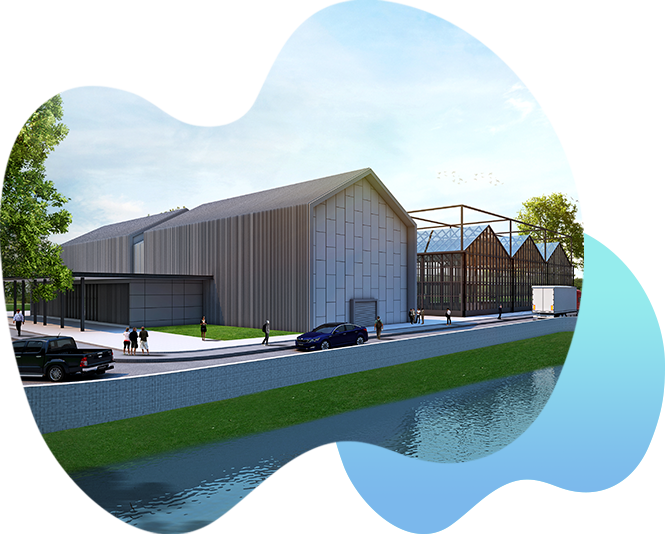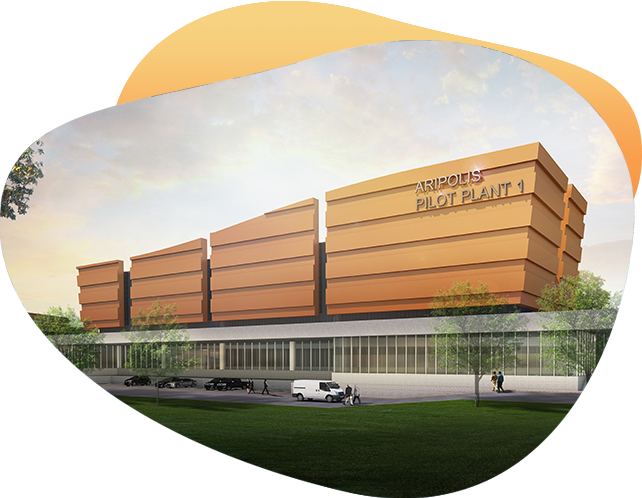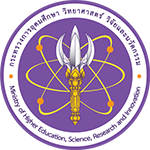Ecosystem
Facilities
EECi is a focal point for translational research infrastructure which were key bottlenecks for Thailand’s R&D commercialization. EECi will empower industrial sector, academic sector, and community to access to integrated R&D services in form of share services practice.
Biorefinery Pilot Plant
BIOPOLIS offers a multipurpose biorefinery infrastructure which is a ‘non-proprietary (generic) equipment’ platform for private and public organisations, as well as local and international universities. This biorefinery platform is designed in such a way that it allows users to re-configure the equipment line-up arrangement, and to adjust process parameters to the extreme values in order to find the optimal process conditions. This unique platform allows clients to scale up and validate to scale up and validate their laboratory scale prototype and to perform the techno-economic feasibility study before investing in a specific, dedicated industrial production line. The infrastructure will consist of two main pilot plants: a non-GMP and a GMP facility. The Non-GMP facility will serve the bio-based industry active in biochemicals, biomaterials, and other relevant bioproducts while the GMP facility will focus on applications in food, feed, cosmetics and neutraceuticals.

This multipurpose pilot plant will be the first of its kind as a sharing centre for bio-based products and processes in not only national but also ASEAN context. The plant will be a non-stop-shop providing professional knowledge, evaluation of techno-economic feasibility and risk management for relevant stakeholders. With less burden of seeking costly services abroad, clients can customize bioprocessing/biorefinery technology for each raw material and product or scale up their innovative processes or products to industrial scale with less burden of seeking costly services abroad. In addition, services will include training and capacity building programmes as well as intellectual property management in the area of biorefinery industry.
Facility |
Module / Area |
|---|---|
| Non-GMP pilot plant | 1. Biomass Pretreatment and Cellulosic Production Module 1 serves three functions: 1) Raw biomass storage and processing; 2) Reaction units for biomass fractionation; 3) Post-treatment to refine or purify biomass constituents from reaction units |
| 2. Bioprocess, Fermentation & Downstream Process Module 2 accommodates the whole process chain of sterile fermentation, i.e. fermentation to downstream processes | |
| 3. Catalyst and Fine Chemical Production Module 3 provides reaction units for chemical production including catalyst synthesis and auxiliary downstream equipment to refine or purify chemicals | |
| GMP pilot plant | 1. Microbial Production Process Area 1 involves fermentation for production of functional ingredients or high-value bioproducts |
| 2. Downstream Process and Bioconversion Area 2 offers flexible downstream processing to refine or purify the end products including formulation and encapsulation. |
Sustainable Manufacturing Center: SMC
Manufacturing in the Industry 4.0 is the result of the transformation in social and population structure. The current capability of small and medium auto parts manufacturers of the world supply chain cannot properly and sufficiently response to the fierce economic competition where demand and preference of the customers are diverse and continually shift. The upcoming manufacturing revolution tend to be even more efficient, driven by semi-automation and full-automation production process to diminish the increasing in difficulties of access to low-cost labor. Human resources efficiency and capability development in order to cooperate with semi-automation and full-automation machinery will resulted in production cost reduction while continually maintain production standard.

The production process must be adjusted to be more flexible in term of ability to produce more variety of spare parts even when production volume of each part is diminished due to demand of each customer become more diverse and specific. The manufacturing organization itself shall equipped with manufacturing information system that just-in-time to analyze this information accurately and be able to compete with other manufacturers in the same cluster that widely locate around the globe. Moreover, end products manufacturers are continually shift technology development role to the small and medium auto parts manufacturers. Therefore, to uphold their competitiveness in the world market, these small and medium auto parts manufacturers need to adjust their capabilities to be able to cope with R&D, design, and engineering activities.
The Sustainable Manufacturing Center (SMC), under the support of EECi ARIPOLIS, is established to pursue the aforementioned objectives along with intensive survey to identify exact demand of the manufacturing sector in all modes including brain storming, small group meeting, local and international research institutes site visit, and so forth. 5 major roles of the Sustainable Manufacturing Center are:
(1) Human Resource Development
The development of human resource is key driven factor for industrial development toward Industrial 4.0, however, this must comprise of human resources at all levels range from build awareness of future manufacturing technology trend for top management level; create understanding and applicable knowledge for middle management and engineering level; as well as skill-building activities for operational staffs. Furthermore, the development of the human resources, including upskilling and reskilling, needs to implement both theorical and practical part.
(2) Networking, Business and Technology Matching, and Driving Industrial Support Policies
Strong industrial network will link those who have different roles in the industry both local and international to drive forward Thai manufacturer to be ready for Industry 4.0 era efficiently and effectively. This can be implemented through exchange of information, study of manufacturing technology and consumer behavior trend, joint development of industrial database, co-drive industrial support policies, as well as create linkage in term of technology and business in both bilateral and multilateral levels.
(3) Demo Production Line and Testbed
Sustainable factory demo production line and testbed are comprised of automation and semi-automation machinery together with complete advanced equipment. Small and medium auto parts manufacturers can use these facilities to test and trial to adjust their production process toward semi-automation and full-automation system. To endorse final decision of manufacturer to invest in actual production line in their own facility, all parameters can be adjusted to identify most proper production process with support from specialist from the Sustainable Manufacturing Center throughout the process. The center will also be the place where System Integrators (Sis) implement R&D, design, prototype, test & trial of new production technologies to response to production processes of new products in accordance to large local and international manufacturing sectors. Possessing of high capability SIs offer a great advantage to local manufacturing sector (small, medium and large) to develop new production process for new product in the most efficient way and able to response to demand of the consumer much faster.
(4) Research, Development, and Engineering
The Sustainable Manufacturing Center has already prepared infrastructure and human resource in the field of research, development, and engineering in the translational R&I level to serve SIs and manufacturing sector. It also offers support in form of manufacturing technology knowledge based on requirement from SIs and manufacturing sector. Moreover, the center is responsible for conducting R&D in new technology for the future manufacturing which will lessen burden from SIs and manufacturing sector in term of investment risk in uncertain and high-risk project.
(5) Standard and Manufacturing Readiness Assessment Service
The Sustainable Manufacturing Center place importance on standards both mandatory and voluntary as foundation for production technology development in various sectors including hardware, software, as well as manufacturing management system. This mechanism will drive the technology development to the right direction with harmonization. The center offers hardware standard testing service and software standard testing service which currently considered as key element for development of automation system and robotic for manufacturing sector. Moreover, the center also offers manufacturing readiness assessment service in cooperation with specialists from industrial sector, academic, along with local and international research institutes. The manufacturers, then, can classify their readiness level within the development stage toward Industry 4.0 and be able to identify gap before implementing industrial revolution successfully and effectively. Such tools or indicator using in assessing the manufacturing readiness are those accepted internationally including SIRI (Smart Industry Readiness Index).








